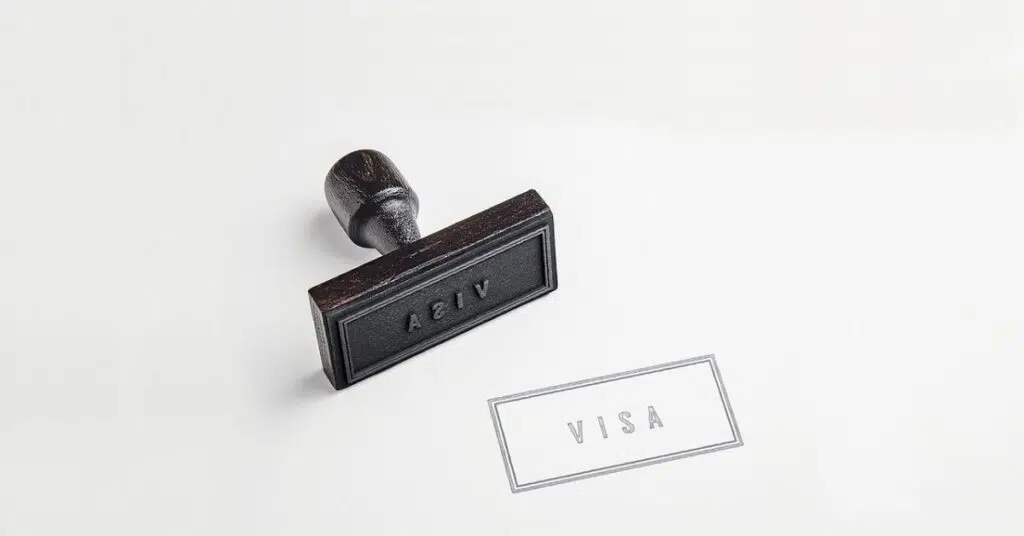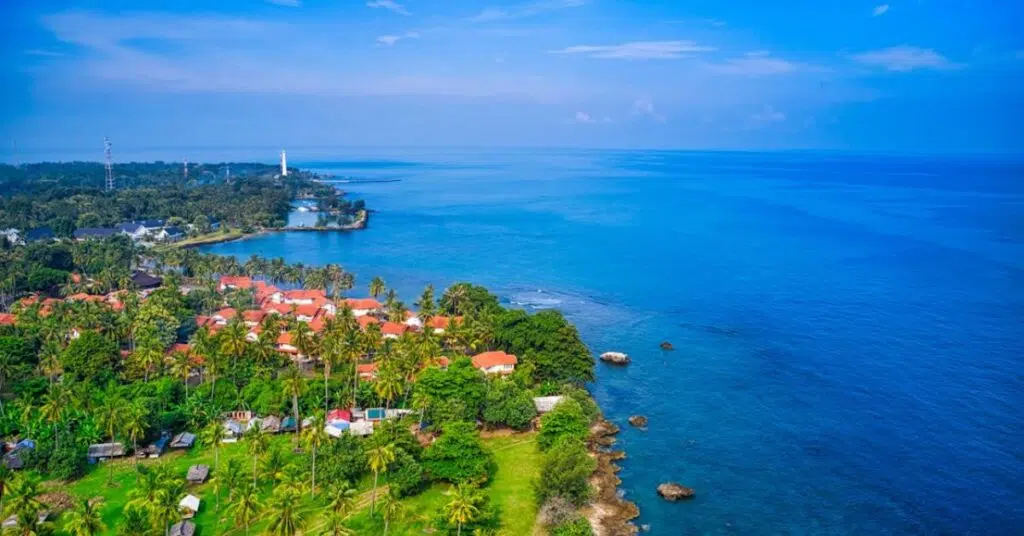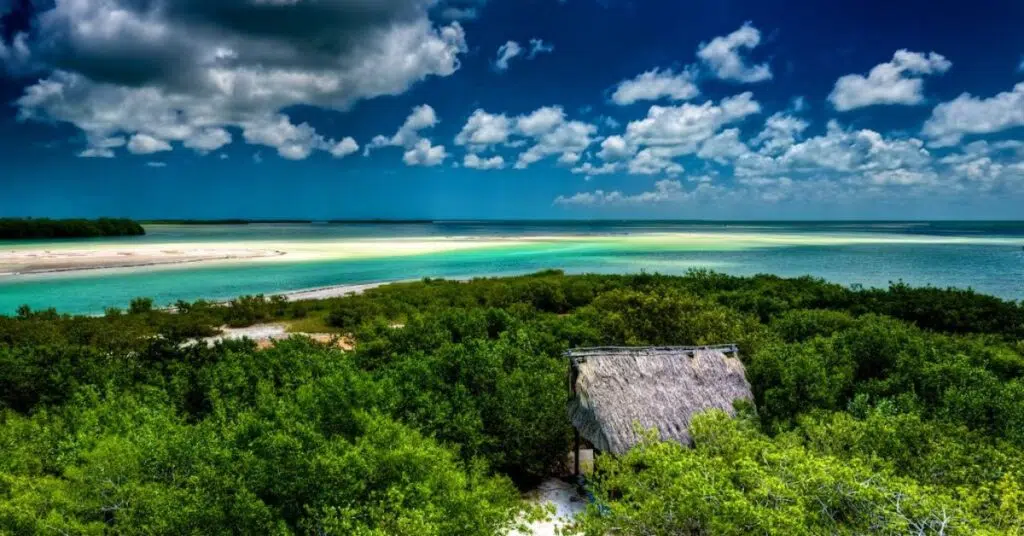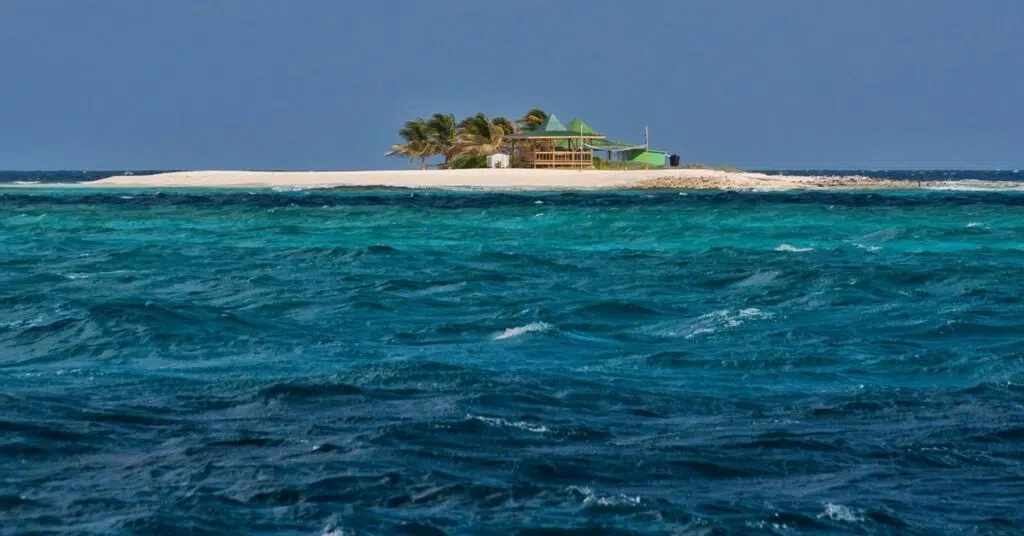In the Caribbean looking for a great family holiday? Imagine great beaches, kind people, and much to do. Which island, though, suits you best? This book makes selecting the top family-friendly Caribbean destinations easy. We’ll examine the cost of living, schools, activities, and safety.
Introduction
The Caribbean isn’t just about pretty beaches. It’s a great place for families to live and have fun! Imagine waking up to the sound of waves, exploring nature, and eating yummy food together.
Why is the Caribbean perfect for families?
- Friendly people, safe places: Caribbean people are very welcoming, so your family will feel secure and at home.
- Nature everywhere: From beaches to forests, there are many places to play and explore.
- Exciting culture: Caribbean music, food, and festivals are a fun mix of different cultures.
- Good schools and hospitals: Many islands have excellent schools and hospitals for your family.
- Affordable living: You can find places to live that fit your budget.
Ready for a family adventure you’ll never forget? Let’s find the best Caribbean island for your family. These islands have everything you need and more!
1. Top Caribbean Islands for Families

Every island in the Caribbean is unique and different. Picking where to live is fun! Here are some great choices for families:
- Grand Cayman: This safe island has great schools and hospitals. If you like a fancy lifestyle, this is the place for you. It also has a beautiful beach called Seven Mile Beach, which is perfect for families. The water is calm, and there’s lots to do.
- Providenciales: This island has some of the prettiest beaches in the whole world, like Grace Bay. Many people from other countries live here, and there are good schools too. If you want a chill island life, this is the place.
- Barbados: This island has an interesting history and culture, and the people are super friendly. There are many fun things to do here with your family, like checking out caves and swimming with turtles. It also has good schools and hospitals.
These are just a few ideas. Later, we’ll examine each island in more detail to discover what makes it unique!
2. Factors to Consider When Choosing a Caribbean Island for Your Family

Choosing the right island is like finding the perfect puzzle piece for your family. Here are some important things to think about:
- Safety: How safe is the island? Look into crime rates and what the community does to keep people safe.
- Cost of living: Are you able to afford it? Look up the cost of houses, food, bills, and other necessities.
- Schools and childcare: What are the schools like if you have kids? Look into public and private schools, international schools, and places that care for kids.
- Healthcare: Are there good hospitals and doctors on the island?
- Things to do: Are there things your family likes to do on the island? Think about beaches, water sports, cultural events, historical places, and other things to see and do.
- Community: What’s the feeling of the island? Is it relaxed or busy? Are there a lot of people from other countries living there?
If you think about all these things, you can find a Caribbean island that is perfect for your family and makes everyone happy!
3. Real Estate Options for Families on Caribbean Islands

Finding a home for your family in the Caribbean can be fun! There are many choices, from big houses by the beach to cozy homes in the hills or apartments in lively neighborhoods.
Rent or Buy?
- Think about your plans. Renting lets you try out different areas and is easier to change. Buying is good if you want to stay in one place and make money later.
Family-Friendly Places:
- Look for places with parks, playgrounds, schools, and shops nearby. Some good areas for families are Seven Mile Beach in Grand Cayman, Grace Bay in Turks and Caicos, and the south coast of Barbados.
Get Help from a Local Expert:
- A real estate agent who knows about family homes can be very helpful. They know the area and its rules and can find the perfect home for you.
Remember, finding the right home is important for your family’s happiness in the Caribbean. Take your time, look at everything, and ask for help if needed!
4. Tips for Relocating to the Caribbean with Your Family

Moving to the Caribbean with your family is a big adventure, but it doesn’t have to be hard if you plan. Here’s how to get ready:
- Papers: Check the rules of the island you want to live on. Some islands have special programs for people who want to invest money or retire there. Others have rules about working.
- Money: Make a budget for everything: a place to live, how you’ll get around, food, doctors, school, and fun things to do. Remember that money is different in other countries.
- Culture: Learn about the local culture and how people do things. This will help you and your kids fit in. Encourage them to make new friends with the local kids.
- Moving: Figure out how to move your things, find a home, set up electricity and water, and get your kids into school. You can even hire someone to help you with all this.
- Health: Get good health insurance for your family. Find out about doctors and hospitals on the island and find a doctor for your family.
Remember, getting used to living in a new country takes time. Don’t be afraid to ask for help! There are online groups and forums where you can get advice from others who have moved to the Caribbean.
5. Family Experiences and Activities in the Caribbean

The Caribbean is like a giant playground for families! There are so many fun things to do that everyone will have a great time.
Fun in the Sun and Water:
Caribbean beaches are perfect for swimming, snorkeling, paddle boarding, kayaking, and building sandcastles. You can also take boat trips to nearby islands to see colorful fish and sea turtles.
Thrilling Adventures:
For more excitement, you can zipline through the forest, hike to waterfalls, ride horses on the beach, or even explore caves!
Festivals and Culture:
The Caribbean is full of colorful culture! You can experience it by attending fun festivals, listening to music, and joining special celebrations. You can also visit museums and old places to learn about the history.
Tasty Food and Crafts:
You can try yummy local food at markets and restaurants and maybe even learn how to make traditional crafts like weaving or pottery.
Learning and Exploring:
Many islands have special programs for kids to learn about the ocean, nature, and the island’s history and culture. Some hotels have kids’ clubs with activities for parents to have a break.
No matter what your family likes to do, you’ll find many ways to make unforgettable memories in the Caribbean!
6. Family-Oriented Healthcare in the Caribbean

Knowing about the doctors and hospitals is important when you move your family to a new place. Luckily, many Caribbean islands have modern medical care and well-trained doctors to care for your family.
Hospitals, Clinics, and Doctors:
- Big islands like Grand Cayman, Barbados, and Trinidad & Tobago have great hospitals that can treat many health problems.
- Smaller islands usually have clinics and medical centers with regular doctors who can help with most things. Special doctors visit often to help with other health problems.
Health Insurance:
- Getting good health insurance for your family before you move is very important.
- Many islands have local health insurance, and there are also insurance companies from other countries that can help.
Emergency Care:
- Most islands have ambulances and emergency rooms for medical emergencies.
- Knowing where the nearest hospital or clinic is is a good idea.
Staying Healthy:
- Caribbean islands are great for health because they have many outdoor activities, fresh food, and a relaxed lifestyle.
- Keep your family healthy by exercising, eating well, and attending the doctor for regular checkups.
Remember, your family’s health is important! Learn about the healthcare options on your chosen island and get good insurance before you move.
7. Education for Children on Caribbean Islands

Schools are important when you choose an island for your family. The good news is that the Caribbean has many different schools.
Public or Private Schools:
- Most islands have public schools that teach like schools in Britain. This is a good practice for kids to learn.
- Private schools usually have smaller classes and more activities.
International Schools:
- Some islands have many people from other countries. These islands often have international schools that teach like schools in different parts of the world.
- These schools suit families who want their kids to learn about different cultures.
Special Needs:
- Some islands provide more help for kids with special needs than others, and many schools are trying to help all kinds of kids learn together.
- It’s important to look into what each island offers if your child needs extra help.
Homeschooling:
- On some islands, you can teach your kids at home. This is a good option if you want your kids to learn in their own way.
- Make sure you know the rules about homeschooling on the island you choose.
Language:
- Most schools in the Caribbean teach in English, so it’s easy for families from places like the US or Canada.
- Some schools also teach in French or Spanish.
Learning about the schools early on is a good idea. This will help your kids move to the new island and get the best education.
8. Cost of Living for Families in the Caribbean

Living in the Caribbean doesn’t have to be expensive! While costs can change depending on the island and your lifestyle, here’s an idea of what to expect:
Housing:
- The biggest cost for most families is rent or buying a house.
- Popular tourist areas like Grand Cayman or the Turks and Caicos Islands will be more expensive.
- Smaller islands or less popular areas might have cheaper places to live.
Food:
- Things brought in from other places can cost more. Buy local fruits, vegetables, and seafood to save money.
Bills:
- Electricity and water bills can be high because of the hot weather.
- You can save money by using energy-saving appliances and not wasting water.
Getting Around:
- Owning a car can be expensive because of extra taxes.
- Some islands have buses or other public transportation, but having a car is easier if you have kids.
School and Childcare:
- Private schools can be costly, but public schools are usually cheaper.
- If your kids are young, remember to think about the cost of childcare, too.
Fun Things to Do:
- There are many free or cheap things to do in the Caribbean, such as going to the beach, hiking, and attending cultural events.
- Plan some money for special outings and family adventures to make your time even more fun.
Remember, if you plan carefully, the Caribbean lifestyle can be affordable for your family! Look at different islands to find the perfect mix of affordability and a great life.
9. Safety and Security Considerations for Families in the Caribbean

Safety is super important for families, and the Caribbean islands are generally safe for everyone. But, like any place, knowing what to watch out for and being careful is good.
Crime:
- Most islands have low crime, especially in places where tourists and people from other countries live.
- Investigating crime in the specific island and neighborhood you’re interested in is a good idea.
Safety Measures:
- Many islands have groups that watch out for their neighbors, police patrols, and security to keep everyone safe.
Safety Tips:
- Be aware of your surroundings, don’t walk alone at night in places you don’t know, and keep your valuable things safe.
- Tell your country’s embassy you’re living there so they can help if needed.
Natural Disasters:
- The Caribbean can have hurricanes and storms, especially from June to November.
- Ensure you know how to keep your family safe during a storm.
If you know about the risks and are prepared, you and your family can enjoy a safe and happy life in the Caribbean!
10. Cultural Experiences for Families in the Caribbean

The Caribbean isn’t just about beaches. It’s a mix of many different cultures, which makes it a great place for families to learn and have fun. Here are some ways to experience the Caribbean’s rich traditions:
Festivals and Celebrations:
- See the amazing Carnival in Trinidad and Tobago, with beautiful costumes and music.
- Join the Junkanoo parade in the Bahamas, with colorful floats and drums.
- Learn about the history of sugar plantations in Barbados and visit old places like Brimstone Hill Fortress in St. Kitts.
Tasty Food:
- Try the delicious Caribbean food, including African, Indian, European, and local flavors.
- Have jerk chicken in Jamaica, roti in Trinidad, or fresh seafood on any island.
- Many restaurants have special menus for kids, and you can find exotic fruits and spices at local markets.
Learn the Language:
- Most people in the Caribbean speak English, but learning a few words in the local language can be fun.
- Many islands have language classes for adults and kids.
Learning about the Caribbean’s history and how people live there will make your family’s trip even more fun! You’ll have a great time and learn a lot about the islands.
Conclusion
The Caribbean is a great place for families to live and have fun! It’s not just about beaches, friendly people, exciting new things to see and do, and many different cultures.
Choosing the Right Island:
Every island is different. Some islands are fancy with lots of expensive things, some are laid-back and relaxed, and some are full of interesting history and culture.
Think about what’s essential for your family. How much money can you spend? In what way do you enjoy living your life? What kind of schools and doctors do you need?
The best way to find the perfect island is to visit a few different ones and talk to people there. They can tell you all about what it’s like to live on the island.
Things to Remember:
- The Caribbean can be affordable, but planning your money carefully is essential.
- Most islands are safe, but it’s always good to be careful and know the risks.
- Many different schools in the Caribbean will help you find the right one for your kids.
- Getting good health insurance for your family before you move is essential.
Life in the Caribbean:
- Imagine swimming in clear water, hiking in beautiful forests, and exploring old places.
- Try delicious Caribbean food, attend colorful festivals, and learn about the local culture.
- You’ll feel like you belong in this friendly community.
The Caribbean is a special place where your family can make unforgettable memories!
FAQs
1. Which Caribbean island is safest for families?
Many Caribbean islands are safe for families. Grand Cayman, Providenciales in Turks and Caicos, and Barbados are some of the best. These islands have minor crime and friendly communities.
2. How much does it cost to live in the Caribbean?
The cost changes depending on the island and how you live. Some islands, like Grand Cayman, are fancy and cost more. Others, like Grenada or Dominica, are less expensive. You can save money by buying local food and not using too much electricity.
3. Which islands have the best schools?
Lots of islands have great schools. Grand Cayman, Barbados, and the Bahamas have good public, private, and international schools.
4. What about doctors and hospitals in the Caribbean?
Bigger islands like Barbados and Trinidad & Tobago have good hospitals and special doctors. Smaller islands have smaller clinics and doctors who visit. It’s really important to have good health insurance before you move.
5. Are there fun things to do in the Caribbean?
Yes! You can go to the beach, snorkel, do water sports, hike, explore old places, and attend fun festivals. There’s always something to do.
6. Is it hard to move to the Caribbean with kids?
Moving to a new country takes some planning. You’ll need to get the proper papers, find a place to live, and find schools for your kids. But it can be easy if you plan.
7. What’s the culture like in the Caribbean?
The Caribbean has a mix of cultures from Africa, Europe, India, and the people who lived there first. Each island has unique music, food, art, and festivals.
8. What’s the weather like in the Caribbean?
The Caribbean is warm all year! It’s usually between 75 and 85 degrees Fahrenheit (24 to 29 degrees Celsius). But be careful! From June to November, there can be hurricanes and big storms.
